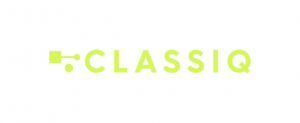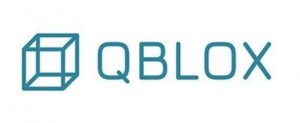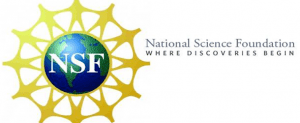Quantum News Briefs June 21: Classiq collaborates with BMW Group & NVIDIA to drive quantum computing applicability in electrical systems engineering • Qblox secures $26 Million in series A funding to accelerate quantum control stack development • NSF awards CU Boulder $20M to lead National Quantum Nanofab Facility • Zapata AI publishes research findings from Phase II of DARPA’s “Quantum Benchmarking Program” • France’s C12 Quantum Electronics SAS raises €18M to stabilize qubits with carbon nanotubes

News Briefs:
Classiq collaborates with BMW Group & NVIDIA to drive quantum computing applicability in electrical systems engineering
 Classiq today announced a collaboration with NVIDIA and the BMW Group on June 20 to optimize mechatronic systems, marking a significant advance in the sophistication of quantum computing implementation in the automotive sector.
Classiq today announced a collaboration with NVIDIA and the BMW Group on June 20 to optimize mechatronic systems, marking a significant advance in the sophistication of quantum computing implementation in the automotive sector.
The initiative is focused on solving a complex computational challenge to find the optimal architecture of electrical and mechanical systems. This problem involves defining the optimal combination of components, from electrical engines and batteries to coolers, and how these should be connected. The goal of this project is to enhance efficiency and reduce energy waste, which can result – among other things – in the increased efficiency of electric vehicles.
Qblox secures $26 Million in series A funding to
accelerate quantum control stack development

Qblox, a leading innovator in quantum technology, announced on June 20 the successful closure of its Series A funding round, securing $26 million in investment led by Quantonation and Invest-NL Deep Tech fund and with participation of QDNL participations and the European Innovation Council (EIC).
The Series A funding will enable Qblox to expand its research and development efforts, accelerate product development, and further strengthen its market position. Additionally, the company will focus on expanding its team to meet growing demand and drive future growth.
This funding milestone signifies a strategic step for Qblox as it continues to drive advancements in quantum control stack development. By integrating extremely scalable hardware and software solutions, Qblox is enabling quantum computer builders around the world to reach industrial applications.
NSF awards CU Boulder $20M to lead National Quantum Nanofab Facility

Researchers at CU Boulder will soon begin work on what they’re calling the “quantum machine shop” of the 21st century. The U.S. National Science Foundation today announced a $20 million grant to CU Boulder to launch a facility known as the National Quantum Nanofab (NQN).
It will take about five years to build the facility: a clean room and nanofabrication tools housed in a new annex to the Sustainable, Energy and Environment Laboratory (SEEL) building on CU Boulder’s East Campus. It will be supported and connected to the existing Colorado Shared Instrumentation in Nanofabrication and Characterization (COSINC) characterization and cleanroom facilities.
Principal Investigator Scott Diddams, professor in the Department of Electrical, Computer and Energy Engineering, alongside a team of physicists and engineers, will lead the realization of this maker space. Diddams said it will help transform discoveries from the quantum world into technologies and devices that can have greater impact on society, and shore up a rapidly growing sector of Colorado’s economy.
Zapata AI publishes research findings from Phase II of DARPA’s “Quantum Benchmarking Program”

Zapata Computing Holdings Inc.(Nasdaq: ZPTA) announced on June 20 that it has published and will present to the Defense Advanced Research Projects Agency (DARPA) select research findings — alongside its collaborators Rigetti Computing, University of Southern California, HRL Laboratories and L3Harris — from its participation in Phase II of DARPA’s program. Publication of these results represent a critical milestone in DARPA’s initiative to quantitatively measure the economic value of specific, transformational quantum computing use cases and the associated hardware-specific resources required for a given level of performance.
The research highlights the economic value and resource requirements for select use cases where quantum computing may be transformative. The research includes applications such as catalyst design, computational fluid dynamics, and material simulation.
DARPA initiated its Quantum Benchmarking program in 2021 with the aim of reinventing the metrics critical to measuring quantum computing progress and applying scientific rigor to often unsubstantiated claims about quantum computing’s future promise. Zapata AI was selected by DARPA for participation in Phase 1 of this program in 2022, with the Phase I award focused on building BenchQ, an open-source tool for benchmarking quantum computing applications, and demonstrating its value for resource estimation.
In Other News:
In Other News: siliconAngle reports France’s C12 Quantum Electronics SAS raises €18M to stabilize qubits with carbon nanotubes
 France’s C12 Quantum Electronics SAS recently announced that it has raised €18 million ($19.4 million). This is its second big round after receiving $10 million from investors back in 2021 according to June 19 article by Mike Wheatley on silicon Angle.. The new round was led by Varsity Capital, EIC Fund and Verve Ventures, and saw the participation of 360 Capital, Bpifrance and BNP Paribas Développement, who took part in the original funding round.
France’s C12 Quantum Electronics SAS recently announced that it has raised €18 million ($19.4 million). This is its second big round after receiving $10 million from investors back in 2021 according to June 19 article by Mike Wheatley on silicon Angle.. The new round was led by Varsity Capital, EIC Fund and Verve Ventures, and saw the participation of 360 Capital, Bpifrance and BNP Paribas Développement, who took part in the original funding round.
Founded in 2020 by the Desjardins brothers, Pierre and Matthieu, who serve as its chief executive and chief technology officer respectively, the startup is pioneering the development of a carbon nanotube-based quantum computer. The company was spun out of the physics laboratory of the École Normale Supérieure in Paris.
C12 has managed to demonstrate, both theoretically and in practice, that its nanotube-based architecture is the closest realization of a single-spin in a vacuum achieved thus far. Its method has been shown to reduce all sources of noise that can affect the stability of qubits. Now the company is looking to scale with the opening of a new Quantum Fab in Paris that will soon begin manufacturing its first qubits.



















